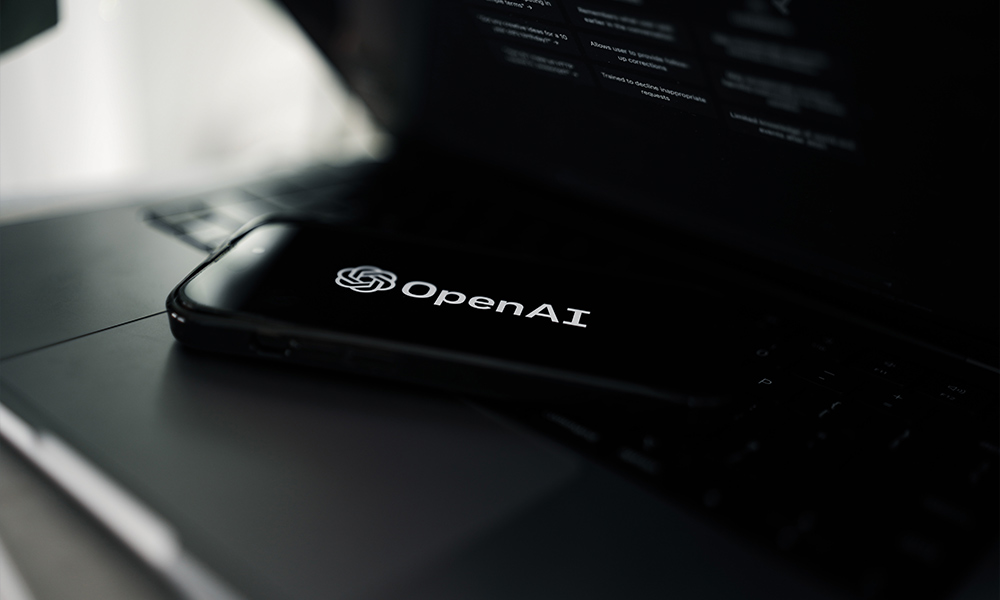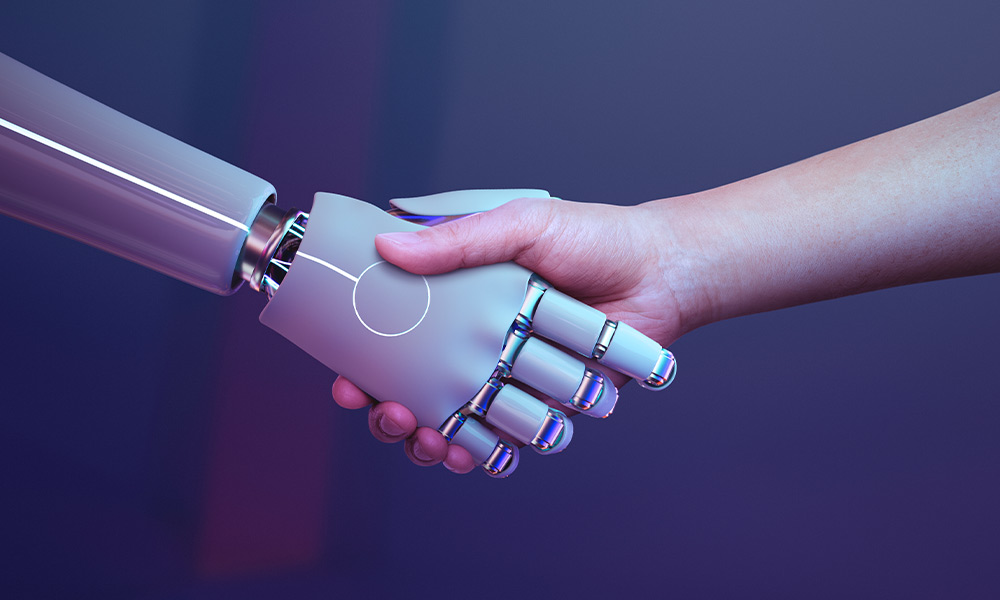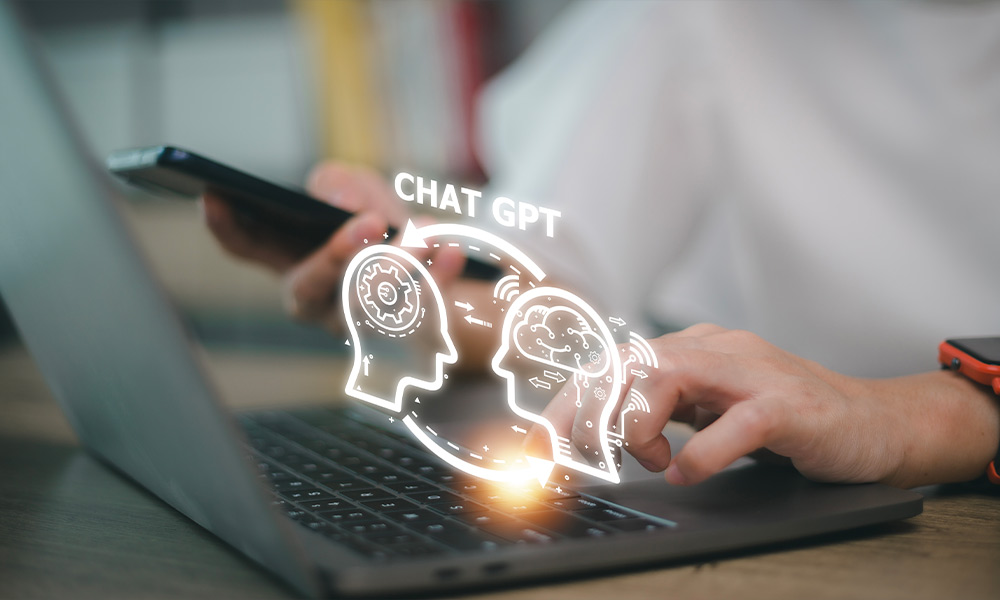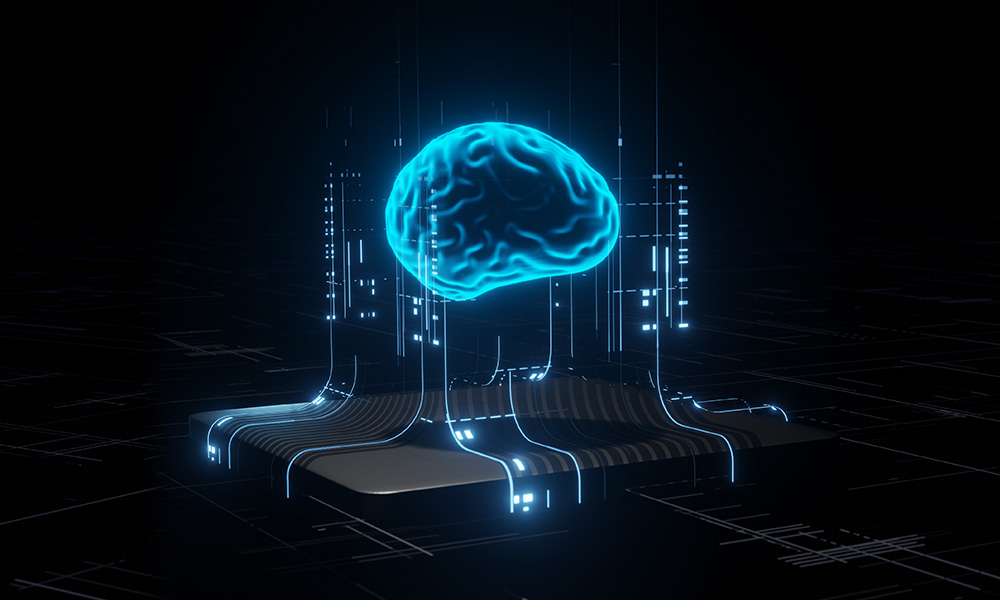The Future Of Employment: ChatGPT And AI In The Workplace

Artificial intelligence (AI) has become the latest buzz topic, thanks to its widespread applications in various fields, including ChatGPT, an AI-powered chatbot created by OpenAI, which has impressed and shocked people with its capabilities to answer questions, write essays, and even argue legal cases.
However, the growing popularity of AI has also sparked concerns about its impact on jobs and careers. Many fear that AI-powered machines will replace human workers, leading to massive job losses and economic disruption.
What is ChatGPT?
Before we delve deeper into the impact of AI on the workplace and working adults, let us take a closer look at ChatGPT. This innovative technology is a generative AI platform that uses machine learning to understand human speech and respond accordingly. Its extensive training data includes books, websites and even social media, so it is able to answer a wide range of questions and converse with people in a natural way. With such advanced capabilities, it's no wonder ChatGPT is becoming increasingly popular with companies. But what impact does this have on workers?
On the one hand, ChatGPT has the potential to increase productivity and improve the quality of work. It could free up workers' time to focus on more complex tasks and allow them to develop new skills. And most company managers are impressed with ChatGPT's work, with more than half of them considering the quality of the work done by the chatbot to be "excellent".

On the other hand, there are some potential drawbacks to using ChatGPT in the workplace. One major concern is that the use of chatbots could lead to the possibility of job loss, particularly for those performing repetitive tasks. There is also a potential loss of human connection in the workplace, data privacy and security concerns, and the issue of bias in the chatbot's algorithms. Companies need to weigh the benefits and risks of using AI in the workplace and ensure they implement them ethically, securely, and inclusively.
It is important to recognise the potential impact of these technologies on the workplace and on working adults. As companies continue to adopt these technologies, it will be critical to develop policies and programmes that help workers adapt to the changing nature of work and ensure that no one is left behind.
What are some common reasons why workers might fear the rise of AI technology or ChatGPT?
The emergence of ChatGPT has undoubtedly raised concerns among some workers who fear that their jobs could be replaced by this advanced AI technology. A study by Sortlist Data Hub showed that 43% of millennials are concerned that ChatGPT could take their jobs, and not without reason, as employers are already considering using the chatbot for various tasks.
As more companies adopt these technologies, there is a risk that some jobs will become obsolete and workers will need to retrain or upskill to remain employed. In addition, the increasing use of AI in the workplace could lead to a growing gap between workers who have the skills required to work with AI and those who do not. Buzzfeed, for example, has already announced that it will generate some content from ChatGPT, which could make certain creative jobs less important.
Marketing is likely to be particularly affected by the advent of ChatGPT, as 51% of employers have indicated that they would use it mainly for various forms of marketing campaigns. PR is another department where human workers could be replaced by ChatGPT, and unfortunately, most marketers may not be prepared for what lies ahead, as only about 16% of them think that their jobs could be replaced by ChatGPT.
The widespread use of ChatGPT could lead to redundancies in the technology sector as employers could quickly adopt this technology if it gives them comparable work at a much lower cost. It is important to note that while ChatGPT and other forms of AI may replace certain jobs, they also create new opportunities and industries. Workers who fear being replaced by AI can try to learn new skills and focus on areas that are less likely to be affected by automation. It is also important for employers to consider the ethical implications of using AI and ensure that they make decisions that benefit both their bottom line and their employees.

What are some common reasons why workers might not need to fear the rise of AI technology or ChatGPT…for now?
There are several reasons why workers in various industries may not need to fear the rise of AI technology or ChatGPT, at least not yet.
• Complexity of Tasks
While AI technology is becoming more sophisticated, it is not yet capable of performing certain complex tasks that require human skills, such as creativity, critical thinking, and empathy. Therefore, workers who perform these types of tasks may not be immediately threatened by the rise of AI.
• Need for Human Interaction
Many industries rely heavily on human interaction, such as healthcare, education, and customer service. AI technology may be able to assist with certain tasks in these industries, but it cannot replace the need for human interaction and emotional intelligence.
• Cost of Implementation
Implementing AI technology can be expensive, especially for small and medium-sized businesses. As a result, some industries may not see widespread adoption of AI technology due to cost barriers.
• Lack of Standardisation
AI technology is still in the early stages of development, and there is currently a lack of standardisation in the industry. This means that AI systems may not always work seamlessly with existing technology or processes, and there may be compatibility issues that limit their effectiveness.
• Regulation and Ethical Concerns
As AI technology becomes more prevalent, there are growing concerns about the potential for bias and discrimination, as well as the ethical implications of AI decision-making. These concerns have led to increased regulation and oversight of AI development and implementation.
While AI technology is advancing rapidly, there are still limitations to what it can do, and many industries require human skills and interaction that cannot be replaced by AI. However, as AI technology continues to evolve, workers may need to adapt and develop new skills to remain relevant in the changing job market.
AI as a collaborator instead of the enemy?
Milind Lakkad, Chief Human Resources Officer at Tata Consultancy Services (TCS), believes that AI tools such as ChatGPT will not replace human jobs, but rather act as collaborators, providing vital support and improving productivity.

Imagine having a collaborator that helps you complete tasks more efficiently so you can focus on more valuable and creative aspects of your work. That's the idea behind using generative AI platforms like ChatGPT in the workplace. These tools will not only work alongside human employees, but also provide support and improve productivity.
Lakkad's comments offer a unique perspective on the impact of AI on the workforce. He believes AI platforms will be a valuable asset to businesses, but they will not change business models or eliminate jobs. Instead, the role of the employee will change and their job description will evolve with the support of generative AI. In this case, the employee will be a supporting tool that helps workers perform tasks more efficiently.
TCS's implementation of generative AI platforms in some areas is evidence of the growing importance of AI in the workplace. However, Lakkad cautions that it will take time for these employees to fully understand the context of the client's industry. He also noted that the amount of work required for a human versus a generative AI platform will vary by industry.
While generative AI will reduce the need for managers, Lakkad predicts that the demand for workers at lower levels of the hierarchy will continue to increase. Workers in these positions will gain valuable contextual skills and be able to collaborate with generative AI platforms such as ChatGPT to perform tasks more efficiently.
The idea of AI workers may seem daunting to some, but Lakkad's comments offer a reassuring perspective on the impact of AI in the workplace. As AI continues to evolve, it will be critical for companies to adapt to new technologies while ensuring that the workforce is equipped with the necessary skills to collaborate with AI tools like ChatGPT.
Strategies that can help you alleviate fears & maximise the benefits of AI?
It is crucial to adopt strategies that reduce the concerns associated with the rise of AI technology and leverage its benefits to ensure job security, boost productivity and efficiency, encourage innovation and growth, and address ethical implications.

• Learn more about ChatGPT
To effectively collaborate with ChatGPT and other AI technologies, it is first important that you know exactly what they are, how they work, and what their limitations are. This can help you identify opportunities to collaborate and use ChatGPT's unique capabilities to enhance your work.
For example, a marketer can learn about natural language processing (NLP) and use it to automate the process of creating marketing copy. This saves time and allows the professional to focus on higher-level tasks such as strategy and planning.
Similarly, an engineer can become familiar with machine learning and use it to optimise manufacturing processes, leading to greater efficiency and less waste.
• Draw attention to the positive impact of ChatGPT
It is also important to focus on the positive impact ChatGPT can have on society, such as improving healthcare, increasing efficiency in various industries and improving access to information and services.
By focusing on the positive impact of ChatGPT, professionals can better understand the value of these technologies and use them for positive change.
• Embrace lifelong learning
To prepare for the continued growth of AI and ChatGPT, professionals should also consider lifelong learning and be open to developing new skills and competencies. This can help you stay relevant in a rapidly changing job market and adapt to new roles and responsibilities.
For example, a journalist can learn how to use ChatGPT to create summaries of complex research studies so that they can report on more topics and write higher quality articles. Similarly, a data analyst can learn how to use machine learning to identify patterns in customer data, leading to more effective marketing campaigns.
Lifelong learning allows professionals to stay ahead of the curve and adapt to new technologies and industry developments.

• Work together with ChatGPT and AI
One of the most effective ways to maximise the benefits of ChatGPT is to collaborate with these technologies and use their capabilities to improve your own work. This may mean exploring new tools and technologies, or working with AI systems to automate routine tasks and free up time for more strategic tasks.
For example, a customer service representative can work with a chatbot based on ChatGPT to handle routine customer queries so they can focus on more complex issues that require human intervention. Similarly, an architect can work with a machine learning system to optimise building designs, resulting in more efficient and sustainable structures.
By working with ChatGPT, professionals can increase efficiency, reduce errors and focus on higher-value tasks that require human expertise.
• Stay up to date with the latest advances and research in AI
Finally, it is important to keep up to date with the latest developments and research in ChatGPT to better understand the potential impact on society and prepare for any changes. Finally, it is important for professionals to keep abreast of the latest developments and research in the field of ChatGPT in order to better understand the potential impact on society and prepare for any changes.
For example, a business owner might learn about the latest research on AI-driven chatbots and decide to deploy one to improve customer service. Similarly, a teacher may learn about the latest developments in AI-powered learning and decide to incorporate these tools into their curriculum.
By keeping up to date with the latest developments in AI, professionals can make informed decisions about how to use these technologies to improve their work and bring about positive change.
We can all agree that ChatGPT has the potential to take over tasks previously done by paralegals, copywriters, digital content producers, executive assistants, entry-level programmers and even some journalists. However, ChatGPT's capabilities are limited by the fact that it can only create content from what already exists. It is not able to identify truly new or interesting ideas or assess the quality of studies on technological change and employment. In this sense, ChatGPT's limitations make it clear that there is still a place for human expertise in various fields.
Despite its limitations, ChatGPT and AI in general have the potential to make many industries more efficient, as in the case of ClearCOGS, an AI-powered small business that helps restaurants and grocery shops reduce food waste and increase profitability by analysing customer orders, delivery data and labour data. ChatGPT can provide simple answers to simple questions, such as whether or not to bake another tray of bread, which can help businesses save time and money
ChatGPT and other AI technologies can be incredibly useful in many industries and have the potential to automate many of the tedious and mundane tasks we face in our working lives. Many of us have already used similar technologies in our personal lives, such as voice assistants and robotic hoovers. So it is natural to expect that AI will also make our working lives easier and more efficient.

Conclusion
While it is true that AI-based technology is changing the nature of work, experts say it's not quite that simple. While some jobs may be automated, AI will create new roles, businesses, and industries. Furthermore, AI is not a substitute for human intelligence and creativity, and it cannot replace the complex decision-making abilities of humans.
Instead, AI will complement human skills, making work more efficient and productive. For example, AI algorithms can analyse vast amounts of data in a short time, which can help human workers make informed decisions quickly.
Moreover, the development of AI technology requires a significant amount of human involvement, from designing and programming algorithms to analysing data and developing new applications. This means that AI will create new job opportunities in the tech industry, such as AI engineers, data analysts, and software developers.
In summary, the introduction of generative AI platforms like ChatGPT is both exciting and scary. It represents a new era of productivity and efficiency, but it also presents us with new challenges that we must face head on. By harnessing the potential of AI and investing in the necessary infrastructure and training, we can create a future where both workers and businesses thrive.

